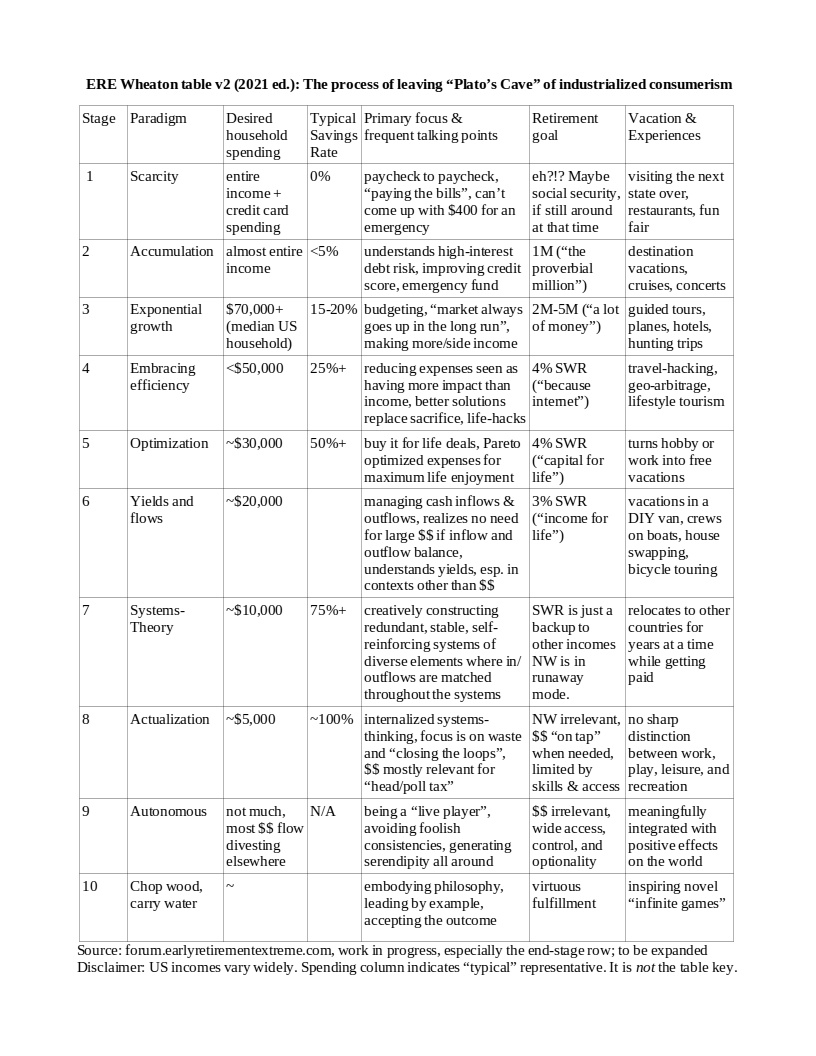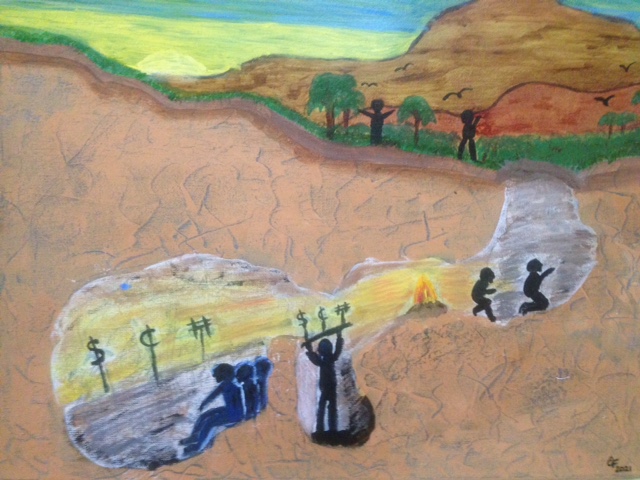I've spent like an hour trying to decipher your post, and have started and stopped on replies a number of times. I have some questions.
1. With respect to ERE generally, are you trying to convince people or to explain it to people?
2. With respect to the ERE Wheaton Table:
Does it really show (explain) that though? How many people in this thread would have been able to guess that that was the purpose of the table? I mean, Plato's allegory of the cave, was exactly that: an allegory. It features simple, commonly known elements (a cave, a fire, shadows, prisoners) that anyone can immediately recognize. Consider that even if someone didn't have a clue as to the "deeper meaning" of the allegory, they would still undoubtably be able to communicate the allegory accurately to someone else (who might then recognize the deeper meaning). At no point is the allegory unclear for the average person who hears it.
Could you provide an example of a table that does this?jacob wrote: ↑Sat Mar 27, 2021 5:32 pmSpeaking of generators, a great table should have the following features.
- Each stage, N, should be written in a way that people on that level would instantly identify with---that's me!---without triggering the Forer effect. If that means different verbiage, perfect!
- The next stage, N+1, should hint at the solution to issues experienced at the current stage if any. It should be inspiring but not revealing since growth is an internal journey, not an external life-hack.
3.
Do you think ERE is that difficult to understand? Do you think that the general public needs to be considered as 1st graders counting on their fingers with respect to ERE? Where are most forum members on that scale?
4.
I mean, I agree that you can't force a student to learn, but surely there is a role for pedagogy? Some teachers are clearly better than others, right? and presumably any underperforming teacher could improve, yes?
Example: I believe that this could have been said in a much more accessible way so that, y'know, people would know what you're talking about. (I have read Kegan. Still a head-scratcher. Should I just scratch harder?
I'm not saying I'm a supreme communicator or anything of the sort, but what was wrong with my ~1 page description in Observation 3 above? It's certainly much shorter than your ~200 page book! Did I miss most of the pertinent message in my description that was 0.5% as long? Did I manage to capture more than 0.5% of the pertinent message? (No, but seriously--I don't want to misrepresent what ERE is. If I'm off base, I sincerely want to know.)
Much of this hinges on what you think is "pertinent" to ERE. Personally, I find the personal finance/early retirement angle a wonderful lens through which to "sell" ERE, but otherwise just a rabbit-hole distraction away from the big picture.
___
Regarding your PS: Fun Fact:
I recently read through this textbook (free!), Energy and Human Ambitions on a Finite Planet by Tom Murphy. It does exactly what you've described. I mean, literally. I've only had high school physics. Chapter 9 handles climate change and radiation and all that very clearly and even in an entertaining way. In 20 pages no less. (The whole book is great, actually.)

